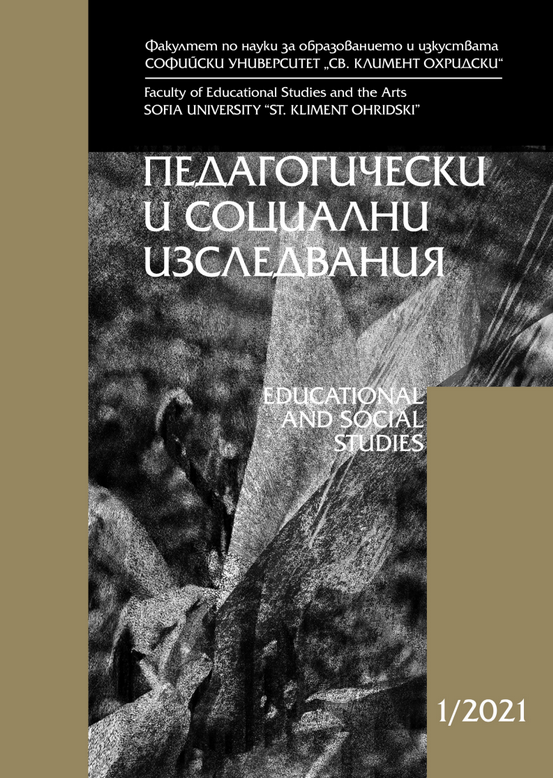“Authentic voice” – main means of expression on the stage and a necessary component of communication competence
Keywords:
communication competency, theatrical techniques, “authentic” voice, self-expressionAbstract
This article discusses the concept of “authentic voice”, originating in theatrical training, in relation with communicative competency and offers specific theatrical techniques for its development in educational practice. The focus is on speech as one of the elements of communication, and its efficiency. Language is one of the elements of communicative competency, which favors social relationships through the creation of texts in the process of social interaction. Linguistic competence includes not just the knowledge of linguistic elements and the rules for their combining, but also the mastery of paralinguistic phenomena such as intonation, prosody and rhythm of speech. These elements are deeply individual and can convey the communicator’s “authenticity”, in other words their personal attitude towards the object of communication. Our claim is that the capacity for such “personal investment” of the communication act, a warrant for its success, can be developed through theatrical techniques.
References:
Berry, C. (1996). Golos i aktyor. M: Moskovskij fond sohraneniya kuljturyj. Available at: https://royallib.com/book/berri_siseli/golos_i_akter.html. (Accessed: 08.04.2021).
Bruk, P. (1978). Praznoto prostranstvo. – V: Izbrani proizvedeniya, prevod El. Sotirova, S.: NI, 1978:26, 159.
Chehov, M. (2016). Za tehnikata na aktyora. S.: Iztok- Zapad, s. 59.
Eftimova, A. (2007). Kym obcht model na komunikativnata kompetentnost v ezikowoto obuchenie. LiterNet, 26.01.2007, No 1 (86). Available at: https://liternet.bg/publish9/aeftimova/kompetentnost.htm. (Accessed: 08.04.2021).
Koleva, I. (2010). Detskata teatralizirana igra kato vyzmozhen pro`it na hudozhestveniya tekst. Plovdiv: Plovdivsko univeristetsko izdatelstvo.
Petrov, A. (2005). Komunikativnata kompetentnost – factor za profesionalnata realizaciya na uchitelya po bylgarski. //Bylgarski ezik i literatura (elektronna versiya), No 2. Available at: https://liternet.bg/publish/apetrov/komunikativnata.htm.
Yordanova, Y. (2014). Uchitelskiyat habitus, Sotsiologicheski pogled kym profesijata uchitel po literatura. Available at: https://juliajordan.wordpress.com/2014/04/03/uchitelskiat_habitus/. (Accessed: 18.05.2021).
Canale, M. (1983). From Communicative Competence to Communicative Language Pedagogy. //Language and Communication. Eds. J.C. Richards and R. W. Schmidt. Longman.





